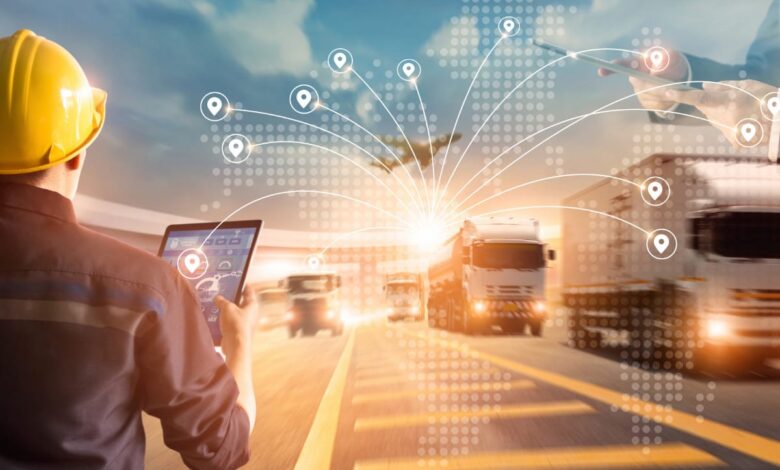Last-Mile Innovation: How Blockchain Drives Crowdsourced Logistics

In today’s fast-paced, delivery-driven world, everyone wants their packages faster, cheaper, and more reliable. The “last mile” in logistics (getting packages from the local hub to your doorstep) has always been the trickiest and most expensive part of the delivery process.
But what if blockchain could revolutionize how this works? That’s right, by combining decentralized technology with crowdsourced logistics, we might finally have a solution to this long-standing challenge.
Speaking of blockchain, have you ever noticed how terms like XRP Price pop up frequently when discussing crypto? It’s because these digital assets power blockchain networks. In the logistics space, blockchain technology is becoming a game-changer by creating innovative systems where anyone can participate, earn, and improve delivery efficiency.
The Problem With Last-Mile Logistics
Before diving into how blockchain transforms last-mile logistics, let’s talk about why this part of the supply chain is such a headache. The last mile accounts for a whopping 53% of total shipping costs. This is mainly due to inefficiencies like failed deliveries, traffic delays, and the challenge of managing an ever-growing volume of e-commerce orders.
At the same time, customers expect more. Thanks to companies like Amazon, same-day and even one-hour deliveries are becoming the norm. But meeting these expectations isn’t easy, especially for smaller retailers or delivery providers.
Crowdsourced logistics, where individuals help deliver packages in exchange for payment, offers potential. However, without the right technology, it’s hard to scale, ensure accountability, and maintain trust.
Enter blockchain.
Blockchain + Crowdsourced Logistics = Innovation
Blockchain technology, at its core, is a decentralized digital ledger. It records transactions in a secure, transparent, and tamper-proof way. Now, imagine applying this to logistics. Blockchain can enable tokenized participation, creating a fair and efficient ecosystem where anyone (from gig workers to local businesses) can join the delivery network. Here’s how it works:
Tokenized Incentives for Crowdsourced Delivery
Using blockchain, companies can tokenize the process of delivering goods. Tokens are digital assets that participants can earn when they complete tasks like delivering a package. These tokens have real-world value and can be exchanged for money, discounts, or even other services.
For example, let’s say a company needs to deliver 50 packages across a neighborhood. Instead of relying on a single delivery truck, blockchain-powered platforms can divide the deliveries among nearby gig workers, offering them tokens for every successful drop-off. This not only speeds up deliveries but also lowers costs.
Transparent and Tamper-Proof Data
One of the biggest concerns in crowdsourced logistics is trust. How do you ensure that a package is delivered on time, to the correct address, and in good condition? Blockchain’s transparent nature solves this problem.
Every delivery transaction is recorded on the blockchain, creating an unchangeable trail of data. If there’s ever a dispute, the evidence is right there for everyone to see.
Smart Contracts for Seamless Payments
Smart contracts are self-executing agreements built on blockchain. In the context of logistics, these contracts could automatically release payment once a delivery is verified.
For instance, a delivery worker might receive their tokens the moment a customer confirms they’ve received their package via the platform. It removes the need for intermediaries and ensures fast, reliable payments.
Benefits for Businesses and Consumers
Blockchain-enabled crowdsourced logistics isn’t just a win for delivery workers. It offers several benefits for businesses and customers alike.
- Cost Savings for Businesses: By leveraging a decentralized delivery network, companies can cut down on fleet maintenance, fuel costs, and the inefficiencies of traditional systems. They can also expand their reach without investing heavily in infrastructure.
- Faster Deliveries: More participants in the network mean more resources to handle deliveries quickly. Plus, local gig workers know their neighborhoods well, reducing delays caused by routing errors or traffic.
- Empowering Local Economies: Blockchain enables anyone to join the logistics ecosystem, providing earning opportunities for people in underserved areas. It can boost local economies while also ensuring better service coverage.
- Enhanced Customer Experience: With real-time tracking, transparent processes, and faster delivery times, customers enjoy a more seamless and trustworthy shopping experience.
Challenges and the Road Ahead
While the potential is massive, there are still hurdles to overcome. For instance, blockchain networks can face scalability issues, especially when processing large numbers of transactions. Plus, educating gig workers and businesses about how to use these platforms may take time.
That said, advances in technology and growing interest in decentralized solutions mean these challenges are likely to be resolved. As blockchain becomes more mainstream, its role in logistics will only increase.
Conclusion
Blockchain has the power to redefine last-mile logistics by turning it into a decentralized, transparent, and highly efficient system. With tokenized incentives, smart contracts, and real-time data tracking, this technology bridges the gap between businesses, gig workers, and customers.
As we move forward, it’s clear that blockchain is more than just a buzzword. It’s a tool for real-world innovation, and its impact on logistics could be nothing short of revolutionary. So the next time you get a package delivered faster than you expected, don’t be surprised if blockchain has something to do with it.
Also Read: Boosting Productivity in the Digital Age




